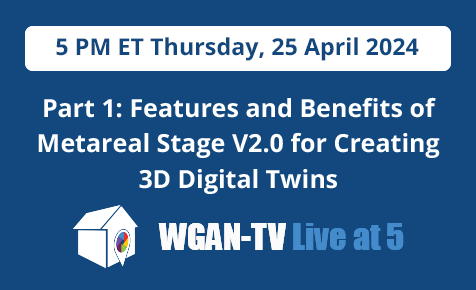Firefox Reality, a VR browser, is available for Oculus, Vive, Daydream7868
Pages:
1
 Standard StandardMember Windsor, UK |
leonvanzweel private msg quote post Address this user | |
| CNET reports: Mozilla released on Tuesday Firefox Reality 1.0, the first version of its web browser geared for three virtual-reality headsets, the Oculus Rift, HTC Vive and Google Daydream. The new browser uses voice control to sidestep the difficulty of typing while wearing a device that replaces your view of the real world, including your keyboard, with the immersive computer-generated scenery. At best, you get a handheld pointer for excruciatingly slow hunt-and-peck text entry. "We had to rethink everything, including navigation, text input, environments, search and more," Andre Vrignaud, leader of Mozilla's mixed reality platform strategy, said in a blog post. "The result is a browser that is built for the medium it serves." Google's Chrome dominates on phones and computers, but Mozilla hopes its pioneering work to adapt VR standards for the web and its new VR-ready browser will help Firefox carve out a place in a future filled with computer-generated scenery. Firefox Reality lets you use your voice to search so you don't have to type with an awkward handheld pointer. Mozilla Firefox Reality is currently designed for VR headsets only. But Mozilla is working on support for related technologies such as augmented reality, which overlays computer-generated imagery onto real-world scenes, and mixed reality, which blends digital imagery with real-world scenes through goggles like the Magic Leap One. To bring VR to the web, Mozilla helped develop a technology called -- wait for it -- WebVR. For post-VR variations, Mozilla's work has moved onto a sequel called WebXR. Mozilla also created a package of pre-written software called A-frame to help web developers build 3D worlds on WebVR and WebXR. Mozilla is also working on Firefox Reality for AR. In this example, a computer-generated teapot floats on a phone's view of the world. Mozilla Mozilla's technologies are potentially important for VR and AR. It's hard to create the immersive content that'll make these virtual or partially virtual worlds interesting. But WebVR and WebXR mean -- at least in principle -- that a developer can create something that'll work on any device with a browser. It also means that legions of web developers can try their hand at VR and AR. That's important to give people a reason to buy and use these new gadgets. VR could use the help. Microsoft scrapped its plans for a VR headset for its Xbox game console. Even my colleague Dan Ackerman, a "true believer," has given up on this generation of VR hardware. --- Source: CNET |
||
| Post 1 • IP flag post | ||
Pages:
1This topic is archived. Start new topic?
















